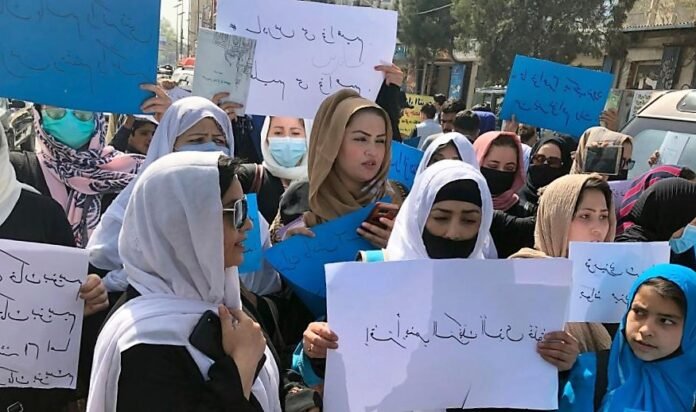Following the Taliban’s recent ban on Afghan women from working at the United Nations (UN), the group’s spokesperson, Zabihullah Mujahid, has declared that the UN can operate freely in Afghanistan. This statement is in contrast to the UN’s claims that the Taliban’s ban is unlawful and a significant infringement of women’s rights. As a result, aid agencies have been grappling with the delivery of support to the people of Afghanistan amidst the Taliban’s takeover and the country’s economic collapse. However, the ban on women in non-governmental organizations and the UN is causing hindrances to aid distribution, as the Taliban cites the women’s lack of correct hijab or Islamic headscarf wearing and gender segregation as the reason for the ban.
Taliban’s Position on Responsibility for Afghanistan’s Crises
The Taliban’s spokesperson, Zabihullah Mujahid, has strongly rejected the Taliban’s responsibility for the current crises in Afghanistan. Mujahid argued that the country’s issues are an internal matter and urged UN member countries to resolve problems such as frozen Afghan assets, banking, travel bans, and other restrictions soon. He added that Afghans have the capability of standing on their feet without foreign interference.
UN Responds to Taliban’s Ban
The UN has commenced an operational review period that will last until May 5, in response to the Taliban’s ban. During this time, the UN will undertake the required consultations, make operational adjustments and hasten contingency planning for all potential outcomes. If the ban persists, the UN may suspend its mission and operations in the country. The UN has cautioned that its Afghan operations are also under threat due to a severe funding crisis, putting millions of lives at risk.
Taliban Unrecognized as Afghanistan’s Legitimate Government
No country has acknowledged the Taliban as Afghanistan’s legitimate government. The former government of President Ashraf Ghani holds the country’s seat at the UN.
Despite the Taliban’s assurances, the situation in Afghanistan remains challenging, and the UN and aid agencies’ work is critical for the Afghan people. However, the Taliban’s ban on Afghan women working in the UN and non-governmental organizations represents a significant setback for women’s rights and gender equality in the country. It is crucial for the UN and its member countries to continue advocating for the rights of Afghan women and ensure that they are not excluded from participating in the country’s reconstruction efforts.
Moreover, prioritizing funding for humanitarian aid in Afghanistan is crucial, given the severe food and health crises facing the country. The international aid is necessary to support the Afghan people and prevent further suffering. The UN and its partners must find innovative ways to deliver aid to the Afghan people while ensuring their safety and security.
The situation in Afghanistan is complex and challenging, and finding a long-term solution will take time. The UN and its partners must remain committed to supporting the Afghan people and promoting stability, peace, and development in the country. The international community must not abandon Afghanistan and its people during this difficult time but instead provide the necessary support to help the country get back on its feet.
It is crucial to recognize that the situation in Afghanistan is not just a political issue but a humanitarian crisis that requires immediate and sustained attention from the international community. The Taliban’s ban on Afghan women in the UN and non-governmental organizations is just one of the many obstacles that the Afghan people face, including food and health crises, lack of infrastructure, and a deteriorating security situation.
To address these challenges, the UN and its partners must work together to find long-term solutions that prioritize the needs and rights of the Afghan people. This includes supporting the Afghan government in building a stable and secure society that ensures the protection of all citizens, particularly women and girls.
In addition, the international community must provide sufficient and sustainable funding for humanitarian aid programs and work towards sustainable development that promotes economic growth, job creation, and infrastructure development.
As we move forward, it is essential to remember that the Afghan people are at the heart of this crisis, and their voices and rights must be heard and respected. The international community must work together to ensure that Afghanistan does not become a forgotten crisis, and that the Afghan people receive the support and resources they need to rebuild their lives and their country.











